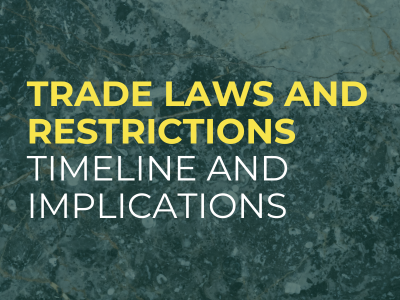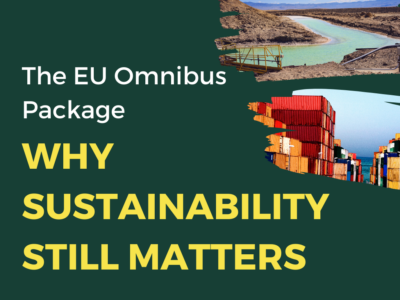
The Dark Side of Electric Vehicle Supply Chains – Understanding Free, Prior and Informed Consent
A recent article in The Nation highlights some of the “age-old” negative impacts associated with mining in electric vehicle (EV) supply chains that are now coming under increasing scrutiny from NGOs due to their accelerating growth and importance to the energy transition. EVs are hailed as the future of sustainable transport, but the path to creating their batteries can lead to significant environmental degradation and severe health issues for local communities, according to the article. Consequently, Indigenous leaders have been actively resisting mining activities and filing legal challenges against companies for violating land rights and causing ecological damage.
EV manufacturers are aware of these issues and have established supplier codes of conduct to promote ethical sourcing. Despite these efforts, they face significant challenges in ensuring transparency and mitigating human rights abuses throughout their supply chains up to the mine level.
One way companies have sought to address these challenges is by encouraging their suppliers to cascade ESG requirements throughout the value chain. In some cases, downstream companies are supporting voluntary ESG mining standards such as IRMA and the Copper Mark and some are even directly supporting community development efforts on the ground.
When it comes to Indigenous Peoples’ rights, TDi works with companies to develop and implement policies, procedures and practices to protect Indigenous Peoples’ rights, based on the FPIC-360° Tool we developed with Equitable Origin.
Some elements of the FPIC-360° Tool that are important to consider in the context of the issues raised in their article are:
➡ Free, Prior, and Informed Consent (FPIC) | Carry out processes that inform Indigenous communities about the impacts of mining and seek consent to mining projects before they commence as well as throughout the mining lifecycle.
➡ Participatory Impact Assessments | Conduct thorough human rights, social, economic, cultural and environmental impact assessments with active participation from Indigenous communities.
➡ Protections for Human Rights and Environmental Defenders | Implement policies that protect and support human rights and environmental defenders who advocate for land rights and environmental protection.
➡ Grievance Mechanisms | Establish grievance mechanisms that are developed with, accessible to and culturally relevant for Indigenous communities in line with the UN Guiding Principles on Business and Human Rights.
TDi offers comprehensive solutions to help organisations define theirsustainability ambitions and develop strategies that align with stakeholder communities, while also taking into account the latest legislation, regulations, and sustainable initiatives. Get in touch or contact our FPIC experts directly to find out how we can help your business.
Contact our team:
Soledad Mills – Senior Vice President



